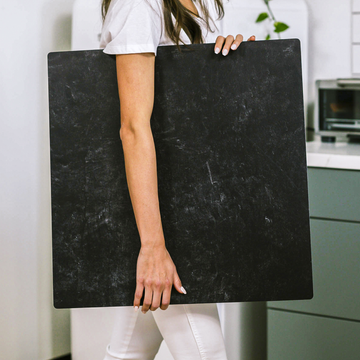Ever wonder why some food photos make you instantly hungry while others fall flat? The difference often comes down to one overlooked element: the backdrop. While most photographers focus on lighting and props, the surface beneath your dish plays a crucial role in shaping the entire image.
At Replica, we've spent years perfecting photography surfaces that do more than just sit there - they actively enhance your shots through smart design and material science. Let's break down what makes the perfect food photography backdrop and how to use it like a pro.
Why Most Backdrops Fail Food Photographers
Walk into any photo supply store and you'll find dozens of backdrops claiming to be "perfect for food photography." But most suffer from three fatal flaws:
- Flat lighting: Cheap materials reflect light unevenly, creating harsh shadows or dull spots
- One-trick designs: A single flat surface forces you to use props to create depth
- Fake textures: Printed patterns that look unrealistic in close-up shots
The Replica Difference
Our surfaces solve these problems through:
- Multi-layer materials that mimic real-world textures
- Engineered light diffusion for natural-looking shadows
- Modular designs that transform from flat lays to angled shots instantly
The Science Behind the Perfect Food Surface
Not all backdrops handle light the same way. Here's how different materials affect your shots:
- Matte finishes absorb light for rustic, organic looks
- Semi-gloss surfaces enhance liquids and glossy foods
- Textured materials create natural depth without props
Our Concrete surface, for example, uses microscopic pebbling to soften shadows, while the Marble finish reflects just enough light to make sauces glisten without looking artificial.
Pro Technique: The Invisible Backdrop Hack
Here's a little-known trick the pros use:
- Fold your surface at a 90° angle to create instant depth
- Align food along the crease to hide the transition
- Use textured panels behind drinks for soft-focus effects
The result? Restaurant-quality shots with minimal setup time and no distracting seams.
More Than Just a Background
A great backdrop should disappear - not call attention to itself, but make your food look its absolute best. That's why we engineer our surfaces to be active tools rather than passive backgrounds.
Ready to transform your food photography? Your next shot is waiting.



